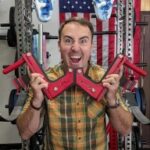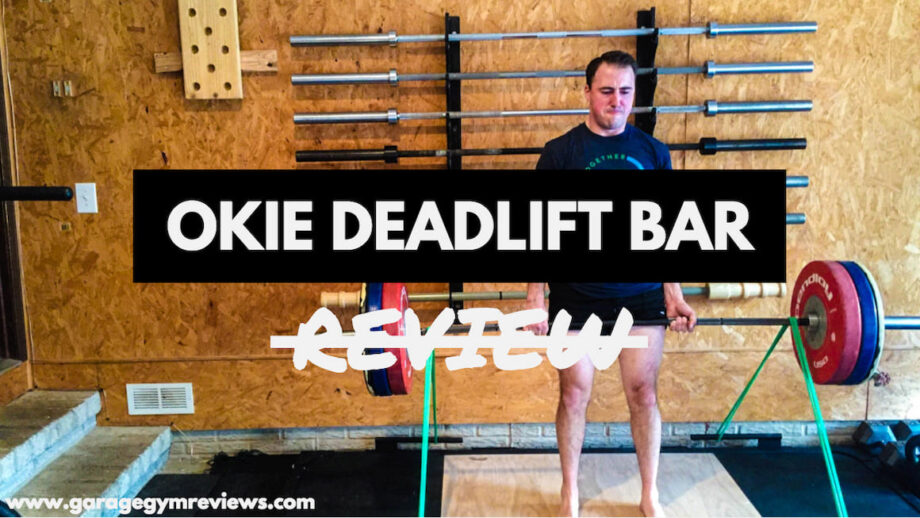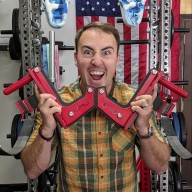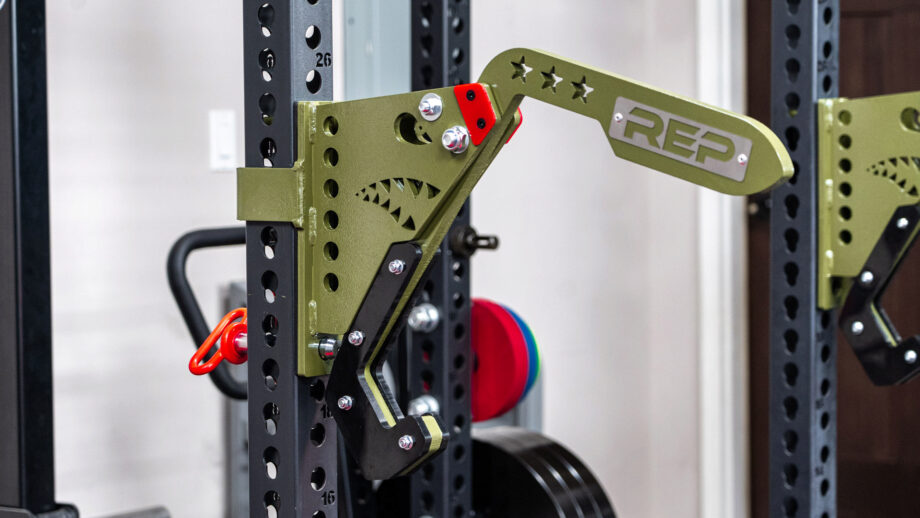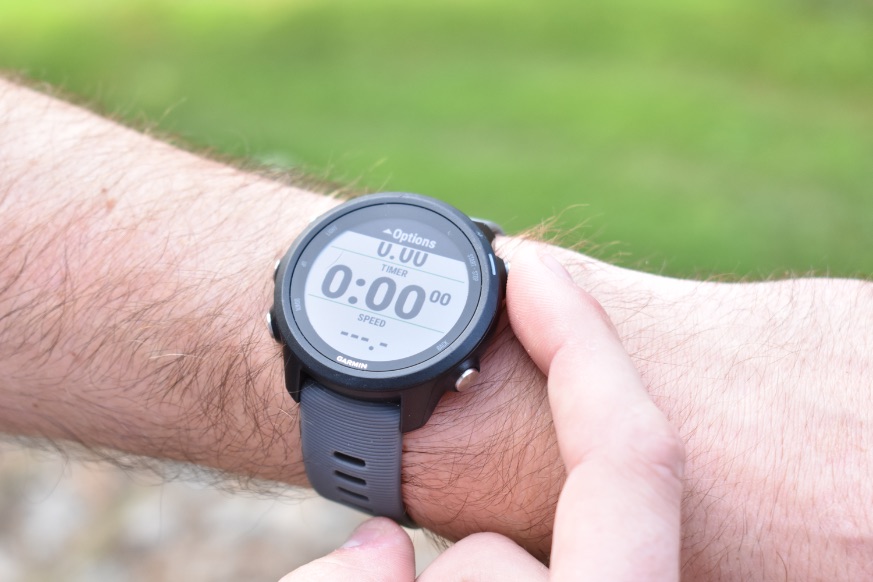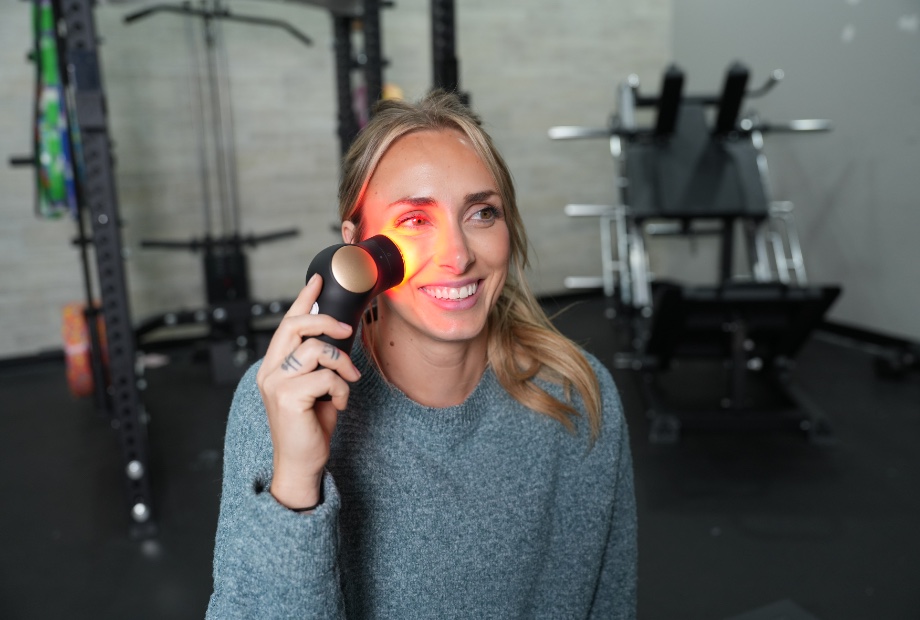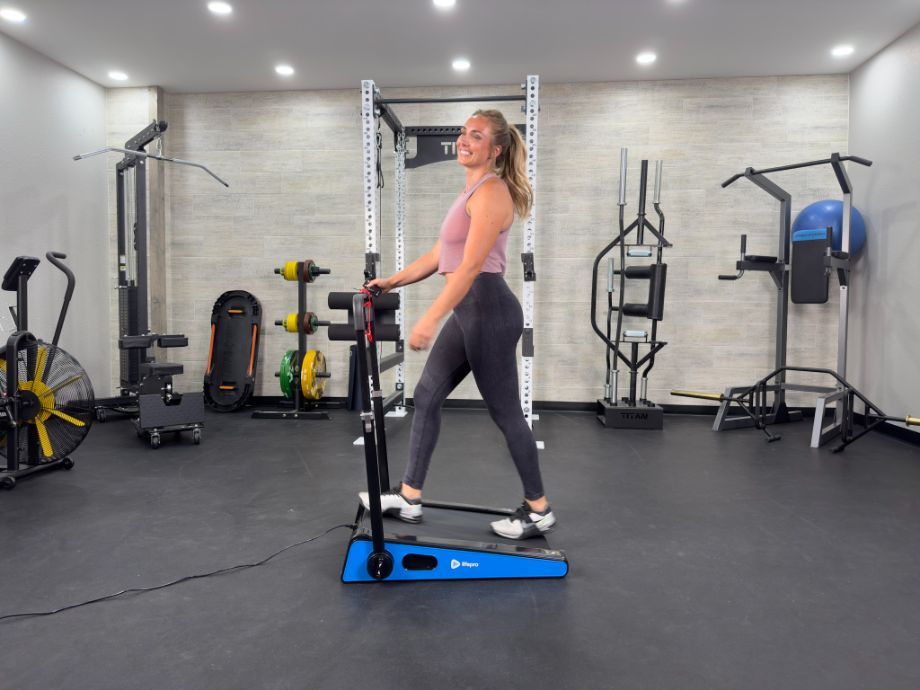Crain’s Okie Deadlift Bar is one of the most legendary barbells ever made. Unfortunately, despite new methods and manufacturing abilities, the Okie Deadlift Bar is still made the exact same way as it was in the 70’s. It’s a beautiful piece of nostalgia, but it’s certainly been passed by the myriad of Deadlift Bar options available today.
CRAIN
CRAIN Okie Deadlift Bar
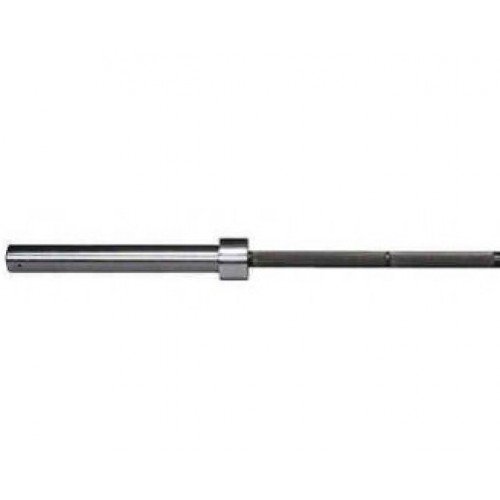
Product Highlights
OKIETM DEADLIFT BAR has been used in NUMEROUS local, state, regional, national, world and international competitions. Designed by Rickey Dale Crain, this bar was the FIRST of it’s kind! Don’t let anyone else tell you different.
Pros & Cons
Bottom Line
Do you want to be taken down a rabbit hole?
Start searching for which barbell to buy. I cannot believe the explosion of manufacturers producing barbells today, and I’m sure I’ve played at least a small part in it.
Today, however, I’m going to be reviewing one of the oldest and consistent power bar manufacturers in the world.
The Crain’s Okie Deadlift Bar.
No joke, there are few bars as iconic as Rickey Dale Crain’s Okie Deadlift Bar.
It’s the original. It’s still made in the USA. It’s thin. It’s long. Its knurl will shred your hands. And it’s absolutely, undeniably heavy metal.
Crain’s Okie Deadlift Bar Review
The Okie Deadlift Bar is made for one thing, and that’s picking heavy slag iron off the floor with.
There are few other bars in the world that are less versatile than the Okie Deadlift Bar. That may seem like a huge disadvantage, but that’s exactly what makes it so special. It’s also the reason it has stood the test of time.
Powerlifting Meet Promotors the world over continue to use the Okie Deadlift Bar despite it never having changed design. It’s as if the bar was made so well, in the beginning, there were few areas for improvement. I will say that it’s likely the Okie Deadlift Bar was simply a manifestation of Rickey Dale Crain’s precision to everything training related.
Check out his squat:
I actually remember hearing stories from my Dad about Rickey Crain’s Powerlifting Exploits. My Dad had an elite level powerlifting total and trained with Doug Furnas and Dennis Wright around the same time and area as Crain. He always said his favorite bar to use was “the slinky deadlift bar Rickey Crain used to make.”
Well Pops, Crain still makes that bar, and it’s as good as ever.
- 155,000 PSI Tensile Strength
- 20 kg./44 lbs. Bar Weight
- 27 MM Shaft Diameter
- 7′ 7″ Long (longest allowable in competition)
- No Bushing or Bearing System. Metal on Metal Sleeve.
- No Center Knurl
- Deep, Aggressive Knurl
- Raw Steel Shaft and Sleeves
- Made in the USA
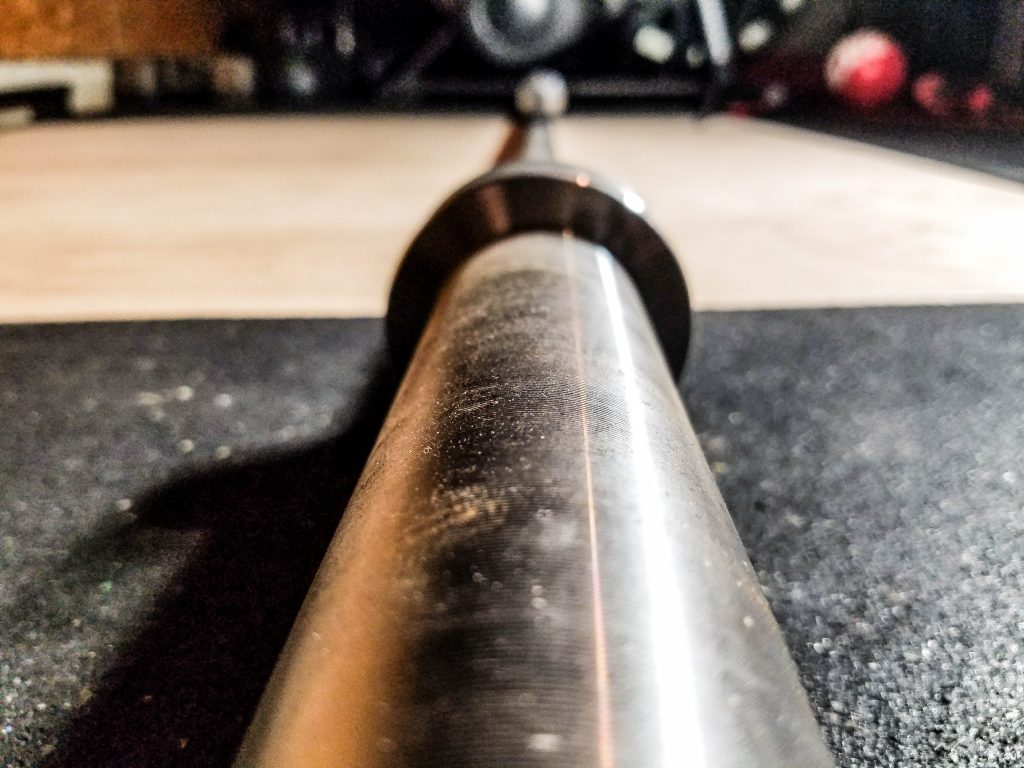
As I’ve said, the Okie Deadlift Bar is made for one purpose. The Deadlift. As such, it has some pretty unique features that would only be beneficial to the deadlift.
I want to make this as clear as possible from the beginning: if you’re wanting to buy a bar for other lifts besides the Deadlift, then this is not for you. Check out the American Barbell Mammoth Bar for powerlifting and the Rogue Ohio Bar for general purpose training.
One of the features of the Okie Deadlift Bar that makes it so well suited for the deadlift is how thin it is.
A majority of barbells being produced today are done so at 28.5 mm. Every since Rogue popularized the “CrossFit Training Bar” it seems that other companies wanting to jump on the craze followed suit in producing similar bars.
Before that, however, nearly every bar was 29-30 mm. in thickness outside of Olympic Weightlifting Bars.
The advantage of a thick bar is that it feels better in your hand during the bench press as well as gripping your shirt in the squat. Obviously, neither of these things are done in the deadlift, and as such, they are negatives for a bar suited for the lift.
A deadlift bar should be thin enoughthat it’s comfortable in hand without it being so thin that it’s difficult to hold or overly uncomfortable.
The magical diameter decided upon by our powerlifting forefathers is 27 mm. Is it possible that a 26 mm barbell would feel better in your hand? Possibly, but I’ve never seen one and the smaller, the better in my opinion as I have Donald Trump hands.
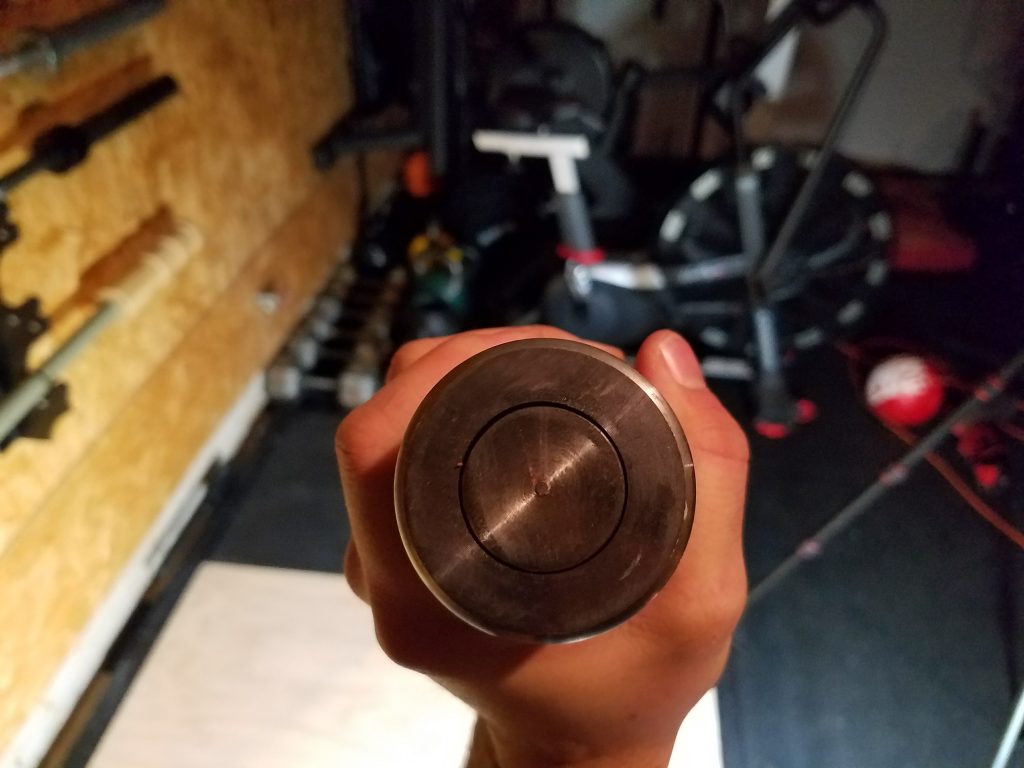
I will say this, if you’ve never had the pleasure of pulling on a 27 mm barbell, then you’re missing out. Nothing fits the hand quite as well as the thin bar (there’s a sexual joke somewhere in there.)
Moving on…
One of the things many of you are likely used to is a coated barbell.
Coatings come in all variants–whether it’s chrome, zinc, or even Cerakote plated. If you have a barbell, it’s likely coated.
Coating a bar has one significant advantage to raw steel bars, and that is it’s resistance to oxidation. Raw steel will begin to rust VERY quickly if left unattended. In fact, keeping a raw steel bar from rusting if it’s used in a garage gym like mine will become a second job for you.
Let me give you a piece of advice. If you’re OCD and don’t like chalk and oxidation on your bars, then a raw steel bar will likely drive you batty.
If however, you don’t mind rust and understand that a raw steel bar left in the open air will do so, then there is not a better feeling bar than one that is raw steel.
You see, no matter how thin a coating is placed on a bar, it will affect the knurling. A raw steel bar leaves the knurling exactly as the manufacturer intended and as such is the perfect coating for a deadlift bar.
Speaking of knurling…
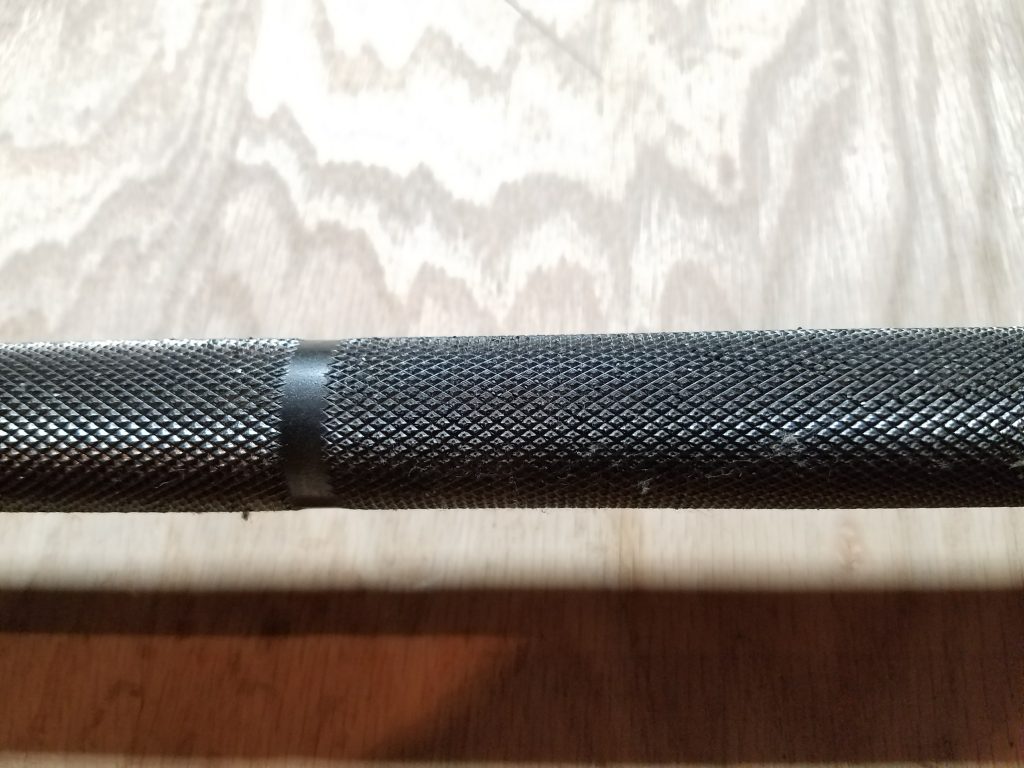
The next most important feature of a deadlift bar is a knurl that grips and won’t let go. The last thing you want when going for a PR pull is the bar to slip out of your hands due to your grip.
There are a few ways to mitigate the possibility of this happening:
- Build your grip.
- Use chalk.
- Buy a bar with shark-tooth knurling
I prefer the shotgun approach.
When I say shark-tooth knurling, I mean it. This bar will ripcallousesand shred shinsstraight out of the box!
It will also allow you to pull heavier weight than before. Pick your poison.
One thing to note on the knurling: this bar is manufactured in the same way and place it has been for decades now. In fact, the manufacturing process is so old school and homegrown, there will likely be tiny metal shards all over your bar when you remove it from the shipping tube.
To some, this may seem like a lack of quality control, to me it just shows how fresh the bar is off of the manufacturing line. Think of a sweet Krispy Kreme donut coming off the conveyor belt!
Both the bar and the donut should put pounds on you, although in slightly different ways.
The last area of the Deadlift bar that is unique is the length of its sleeves.
For those pulling over 700 pounds, the space on a barbell sleeve is critical. For mere mortals like myself who still struggle with a quarter ton, then it’s not as important.
Either way, this bar is long. Both the sleeves and the shaft are longer than a typical barbell to allow for more whip off the floor as I’ll explain soon.
If the space on your bar sleeve has ever been an issue, then a longer sleeve like the one on the Okie Deadlift Bar could prove to be beneficial.
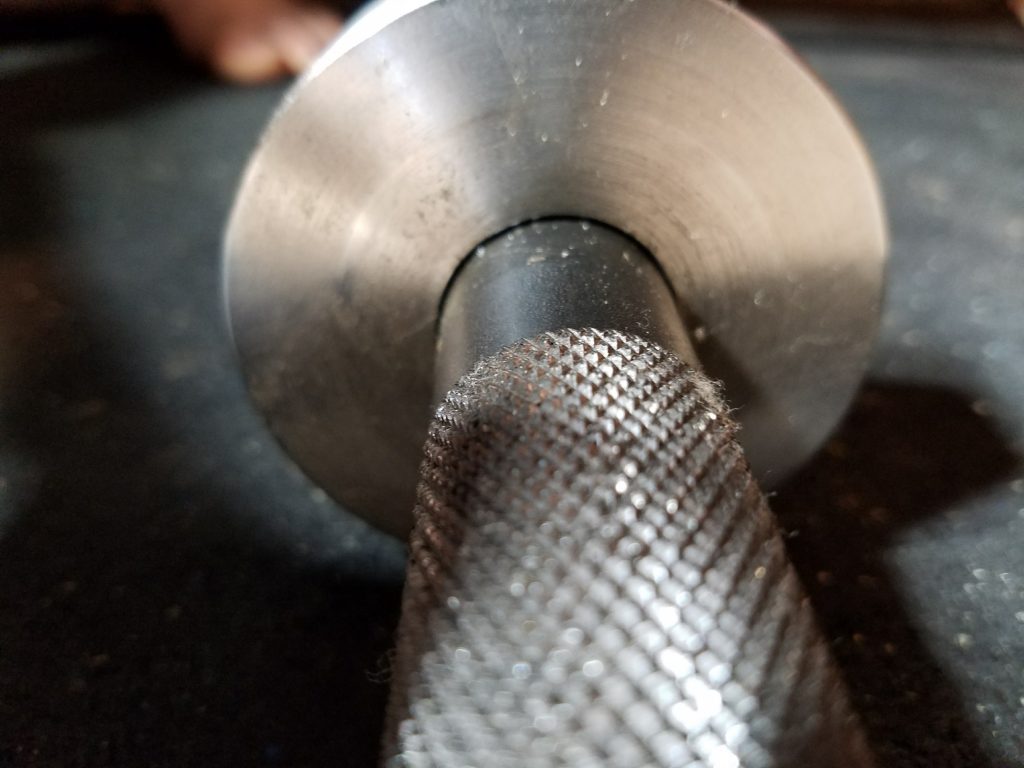
Barbells today typically have one of two spin systems.
A bushing system, bearing system, or some combination like Uesaka Olympic Bars (best spinning bars in the world.)
Crain’s Okie Deadlift Bar, however, has neither.
In fact, it doesn’t really have much of a rotation system. It’s a simple sleeve wrapping around the shaft.
It does spin, however not gracefully.
But, it must be understood the use at which the bar is made. In the deadlift, the only rotation you should desire is the one in which pulling the bar towards you in your setup is possible. If you don’t understand what I mean, watch this video of Benedikt Magnusson deadlifting 1,015 lbs.
So, the bar is metal on metal. It doesn’t really change the performance, but it would have been nice for it to include some bushings to reduce wear and tear.
Okay, so you’ve got a bar that is long, thin, and able to hold a lot of weight. The next thing to do is load it up andplace it on the platform.
Lately, my preferred place for deadlifts has been my Banded Deadlift Platform by Rogue (it’s completely unnecessary, but I love it.)
So, through a few different sessions I loaded the bar up and did everything from speed pulls ala Louie Simmons to halted deadlifts. It’s hard to explain how great a feeling using a deadlift bar on deadlifts feels until you’ve experienced it.
One of the big benefits of a deadlift bar is how slinky they are off the ground.
Due to the lower tensile strength, length (it’s over 1/2 a foot longer than most other bars), and thinness, the bar weights come off the ground one by one.
This feeling isn’t experienced immediately, but as you get into the upper weight ranges, you start to notice it.
One may think, “that seems like cheating.” Well, most federations use deadlift bars, and it’s not like it’s going to add 100’s of pounds to your pull; so relax.
Final Thoughts
Rickey Dale Crain was an absolute technician on the platform, and he’s brought that level of attention to detail to this barbell.
If you’re looking for your first barbell or an all-purpose bar, I’d suggest looking elsewhere.
But, if like me, you’ve developed an arsenal of barbells and are seeking to add a new toy, you cannot go wrong with the Okie Deadlift Bar from Crain’s Muscle World.
Being a Midwest Boy, I also like the fact that it’s made in Oklahoma. Supporting small, Made in the USA businesses is important to me.
Full Rating
CRAIN Okie Deadlift Bar

Crain’s Okie Deadlift Bar is one of the most legendary barbells ever made. Unfortunately, despite new methods and manufacturing abilities, the Okie Deadlift Bar is still made the exact same way as it was in the 70’s. It’s a beautiful piece of nostalgia, but it’s certainly been passed by the myriad of Deadlift Bar options available today.
Product Brand: Okie Power Bar
Product Currency: USD
Product Price: 359
Product In-Stock: InStock
4
Crain’s Okie Deadlift Bar FAQs
Which bar is best for deadlifts?
Power bars are arguably the most common deadlift bar since these are the bars that powerlifters use in competition and the bars that most strength gyms use as their standard bar for their members.
Is a deadlift bar worth it?
Longer deadlift bars help the lifter to raise more weight off the ground during the deadlift. This is because the farther the loaded weights are from the center of the bar, the more the barbell will bend.
RELATED: Deadlift Muscles Worked
Are Olympic bars good for deadlifts?
You may also deadlift using a weightlifting or Olympic bar. Both men and women use a 20-kilogram powerlifting bar. The Olympic bar weighs 20 kilograms for men and 15 kg for women. The rigidity of the powerlifting rod is much higher (it may break if you throw it regularly in snatch,clean and jerk).
Where to Purchase
CRAIN
CRAIN Okie Deadlift Bar

Product Highlights
OKIETM DEADLIFT BAR has been used in NUMEROUS local, state, regional, national, world and international competitions. Designed by Rickey Dale Crain, this bar was the FIRST of it’s kind! Don’t let anyone else tell you different.
Pros & Cons
Bottom Line

